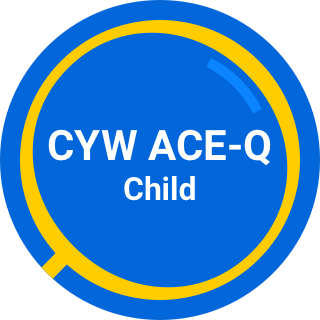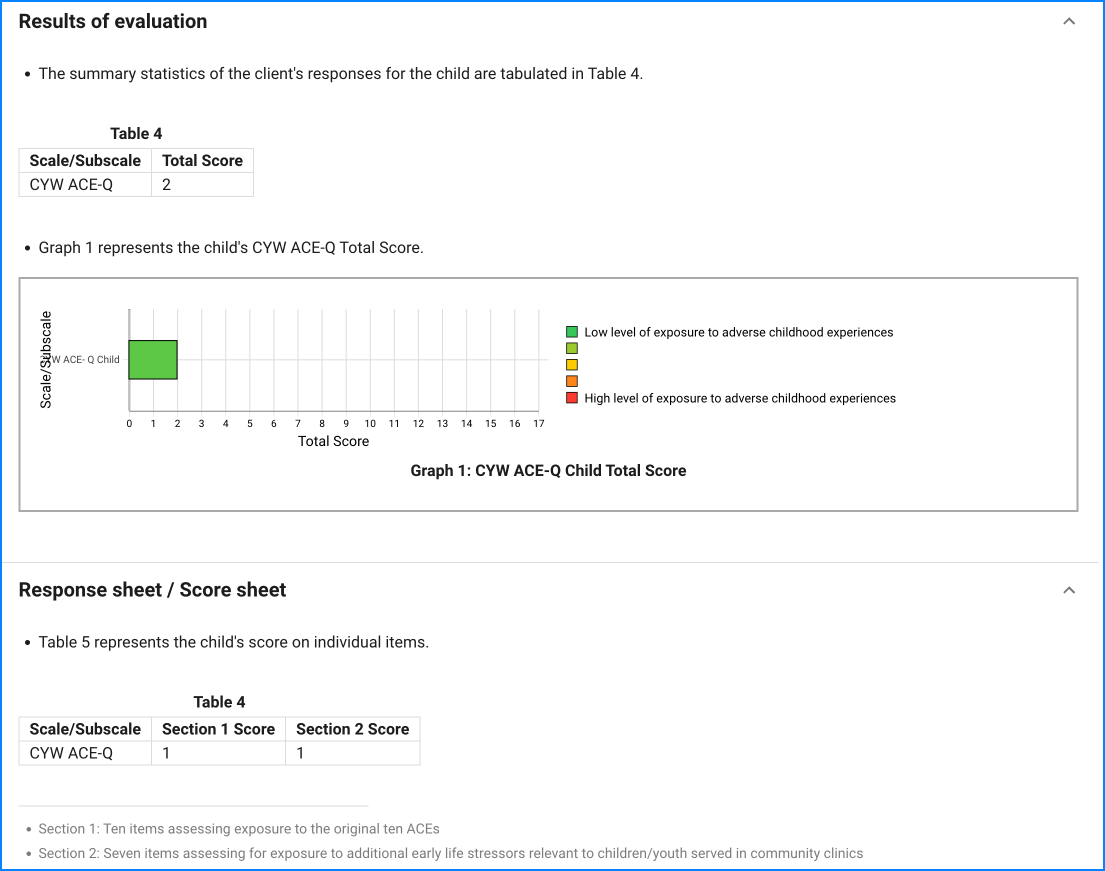The instrument is comprised of two sections: Section 1 of the CYW ACE-Q (i.e. items #1-10) consists of the traditional ten ACEs for which we have population-level data for disease risk in adults. Section 2 includes seven (CYW ACE-Q Child) items assessing for exposure to additional early life stressors identified by experts and community stakeholders. These items are hypothesized to also lead to disruption of the neuro-endocrine-immune axis, but are not yet correlated with population level data about risk of disease. They include involvement in the Foster Care system, bullying, loss of parent or guardian due to death, deportation or migration, medical trauma, exposure to community violence, and discrimination.
The CYW Adverse Childhood Experiences Questionnaire for Children (CYW ACE-Q Child) is a clinical screening tool that calculates cumulative exposure to Adverse Childhood Experiences (ACEs). It is a 17 item instrument completed by the parent/caregiver for children age 0 to 12. Respondents are asked to report how many experience types (or categories) apply to their child, not which experiences apply (i.e. it is de-identified). The CYW ACE-Q Child is intended for use in pediatric and family practice settings to identify patients at increased risk for chronic health problems, learning difficulties, mental and behavioral health problems and developmental issues due to changes in brain architecture and developing organ systems brought on by exposure to extreme and prolonged stress.



